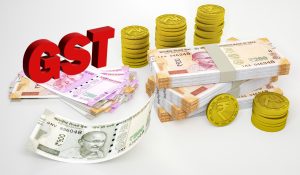 The GST exemption on medicines for rare diseases announced on Tuesday is unlikely to provide any relief for those who are in dire need of treatment, health activists told ET.
The GST exemption on medicines for rare diseases announced on Tuesday is unlikely to provide any relief for those who are in dire need of treatment, health activists told ET.
According to them, these drugs are exorbitantly priced and the share of patients who can afford to import them is negligible.
Finance minister Nirmala Sitharaman on Tuesday announced GST Council decision to exempt cancer-fighting drugs, medicines for rare diseases, and food products for special medical purposes from GST tax.
Activists said they have been seeking tax exemption instead for drugs which are approved by India’s drug regulator and are available in the country. But the government is yet to budge, they said.
For example, activists have made several requests to the finance and health ministries to exempt medicine for treatment of spinal muscular atrophy (SMA), which is a rare and devastating genetic disease caused by a lack of a functional survival motor neuron 1 (SMN1) gene, resulting in the rapid and irreversible loss of motor neurons, affecting muscle functions, including breathing, swallowing and basic movement.
“But our requests are pending before the ministries. The exemption of tax for imported drugs hardly serves any purpose,” said Archana Panda, cofounder and director, patient advocacy cure, of SMA Foundation of India.
Novartis’ gene therapy Zolgensma is one of the most expensive therapies available for SMA with a price tag of around $2.1 million in the US and just under €2 million in Europe.
“The point is that the percentage of people who can import the drug is negligible,” Panda said. “The individual cost of such drugs is astronomical and hence only those cases can benefit where humanitarian access is given.”
She said that there are around 1,050 registered SMA patients from across the country.
Her organisation had even approached the Supreme Court two years back for GST exemption on Indian drugs.
“The Supreme Court said that it is a policy decision and therefore they cannot intervene,” Panda said. “However, they were of the opinion that the health ministry should be able to do this. However, till date GST exemption available on medicines available in India is still pending.”
In India, Roche Pharma’s drug Evrysdi (Risdiplam) is available for the fatal genetic disorder. Roche doesn’t manufacture it in India but they have market authorisation by the drug regulator and hence the drug costs much less than the imported options.
The price of the Roche drug depends on the weight of the patient. For example, for a 60 kg patient, it costs around Rs 72 lakh annually with their patient support programme.
Another activist on condition of anonymity said, “The relief or the tax exemption is needed for those drugs which are approved by the drug regulator in India.”
Source: The Economic Times
https://economictimes.indiatimes.com/industry/healthcare/biotech/healthcare/gst-exemption-on-medicines-for-rare-diseases-is-unlikely-to-provide-any-relief-to-those-in-need-health-activists/articleshow/101711866.cms


